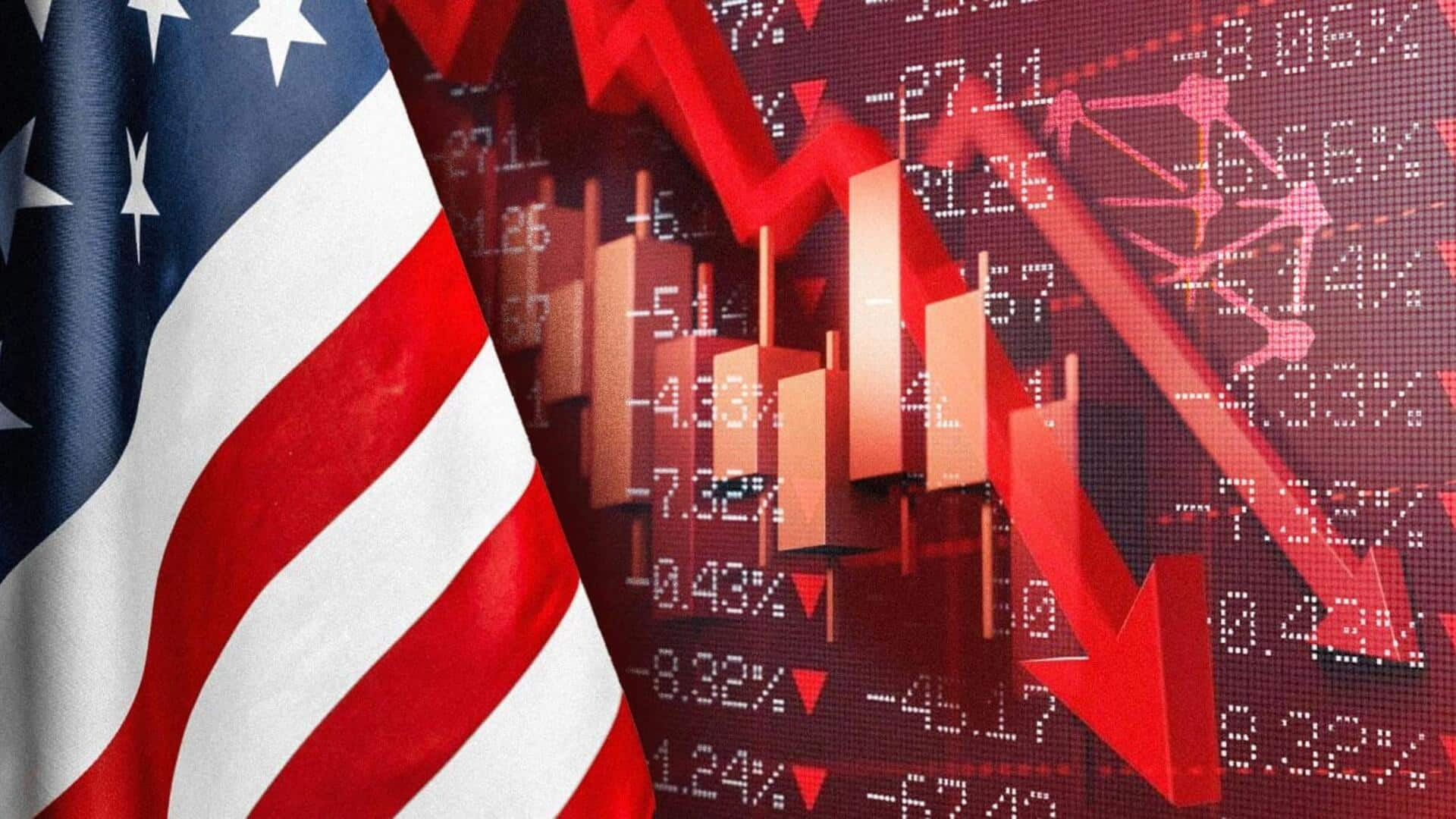
$4 trillion wiped off: Why did US stock market crash?
What's the story
The US stock market saw a major crash on Monday, with leading indices such as Nasdaq and S&P 500 falling by 4% and 2.7%, respectively. The selloff erased $4 trillion from the S&P 500's February peak. The steep fall was largely fueled by fears of a trade war and economic slowdown under President Donald Trump's trade policies, sending investors into a frenzy.
Tech impact
Tech stocks face biggest losses since 2022
The market downturn has led to heavy losses for technology stocks, marking their biggest intraday drop since 2022. Tesla shares crashed 15%, while NVIDIA declined by over 5%. However, the fallout was not limited to equities alone. Other asset classes, including corporate bonds, the US dollar, and cryptocurrencies, also witnessed a significant selloff. Responding to the grim economic outlook, US bond prices fell while yields rose as investors flocked to safe-haven assets.
Tariff turmoil
Trump's tariffs spark uncertainty and fears of recession
Trump's announcement of new tariffs against several countries, including Canada, Mexico, China, and reciprocal tariffs against India, has caused widespread uncertainty among businesses and investors. Fears over these tariffs and their potential economic consequences are viewed as key factors driving the recent selloff in the US stock market. There are heightened fears that Trump's tariff policies could slow down the US economy and increase recession risks.
Economic indicators
Mixed signals from recent US macroeconomic data
Recent US macroeconomic data has sent mixed signals about the world's largest economy. A jobs report released last Friday revealed that employers added 151,000 jobs in February, an increase from January's revised figure of 125,000 but half as many as in November and December. Meanwhile, expectations for further rate cuts by the US Federal Reserve have diminished. The central bank will likely keep its benchmark interest rate unchanged in the coming months due to uncertainty stemming from Trump's policies.
Market impact
How will this affect the Indian stock market?
In light of the weak global cues, India's leading indices, Sensex and Nifty, opened in red today. At the time of writing, Sensex was down by nearly 200 points. The Indian stock market has been under pressure due to heavy foreign capital outflow amid signs of economic slowdown. Trump's tariff policies have added further uncertainty about economic growth, which could accelerate foreign capital outflow even more.